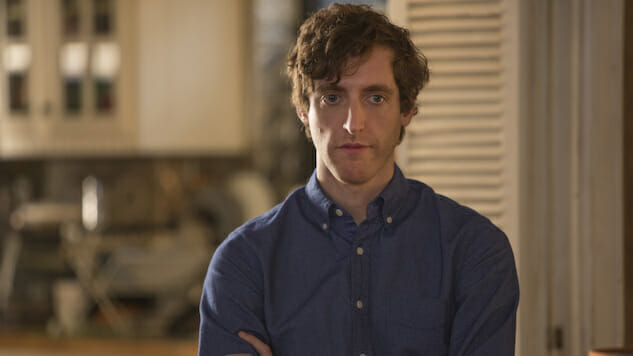The 15 Best Sitcoms of 2017
Header photo: HBO
Last year, our challenge was to define “sitcom” at a moment in which TV series regularly defy categorical boundaries. When it comes to the best sitcoms of 2017, that’s still the case—what follows is a veritable grab-bag of comedies, from which we excluded variety/sketch programs, hour-long comedies (no knock on Crazy Ex-Girlfriend!), and anything whose genre elements seemed to make it something other than a sitcom.
What really becomes clear, though, after glancing over the list, is the resurgence of the sitcom in all its forms, from the broadcast networks to streaming animated series. You may quibble with our choices—we expect you to, frankly—but Paste’s list of the year’s best sitcoms, expanded to 15 entries this time around, is proof, most of all, that it was a great year for TV comedies.
15. Speechless / The Middle
Network: ABC

Look, I’m the assistant TV Editor at Paste and damn it, it’s high time I wielded my power and gave The Middle the attention and praise it deserves. Now in its ninth and final season, the series hilariously celebrates the joys and hardships that come from raising children and homes in on the very essence of parenthood, adolescence and the family ties that bind. Special shout outs to Eden Sher and Patricia Heaton. In the ever optimistic Sue Heck, Sher has created one of the best TV characters ever. (The fact that she doesn’t have an Emmy is a travesty.) And Heaton has now been on two comedies that ran for nine seasons each. That’s not luck. That’s talent. While The Middle is ending, Speechless is blossoming in its second season. The DiMeo family pulls in laughs from the everyday struggles of raising a child with cerebral palsy (and raising children in general). Both shows understand a loving marriage where you adore your spouse because of, not in spite of, their faults. Both featuring outstanding performances, especially from younger actors. And both are guaranteed to make you laugh. —Amy Amatangelo
14. Vice Principals
Network: HBO

Who knew Vice Principals would ultimately be a (sort of) tender, (somewhat) touching treatise on love and friendship? The HBO show from Danny McBride, Jody Hill and David Gordon Green finished its second (and last) season by reaffirming the deeply weird friendship between McBride’s Neil Gamby and Walton Goggins’s Lee Russell. The Fatal Attraction twist in the finale might have been a bit telegraphed, and it and the graphic tiger attacks might have been on the more cartoonish end of the show’s spectrum, but both fit the violence-suffused heightened reality that the show has always been set in. In the end Vice Principals does right by its most uncomfortably beleaguered character, Kimberly Hebert Gregory’s Belinda Brown (who was deeply missed this second season), and provides relatively happy endings for both of its leads while still not fully celebrating or rewarding them for their vile behavior over the last school year. And yeah, if you’re a Kenny Powers fan who’s been sitting on the fence with this one, Vice Principals was a worthy follow-up to Eastbound & Down. —Garrett Martin
13. Fresh Off the Boat
Network: ABC

It’s no wonder that Fresh Off the Boat continues to thrive in the network television environment. “Representation” is often tokenism, despite being a mainstream talking point for the industry, but FOTB is the real thing—and it shows. The specificity of experience written into characters we’ve grown to love over the past four seasons makes the sitcom able to navigate choppy emotional waters with a grace grown from reality. “Four Funerals and a Wedding,” a season highlight, is a perfect example of how dedication to not making a show solely about universal experiences makes Fresh Off the Boat one of the most complex, engaging, moving comedies on TV. —Jacob Oller
12. Silicon Valley
Network: HBO

After three seasons of Silicon Valley, Pied Piper founder Richard Hendricks (Thomas Middleditch) is no longer the naive innocent trying to change the world with his tech. Season Four finds him pushed out of his own company, which is now focused on Dinesh’s chat app. Despite a lofty new vision for creating a decentralized version of the internet, he adopts a black hat out of desperation, resorting to increasing illegal behavior that causes even his most loyal follower, Jared (Zach Woods), to lose faith in him. The show continues its biting satire of the tech industry and its rock-star personalities, with characters like venture capitalist Keenan Feldspar (Haley Joel Osment) and a more nuanced version of Hooli founder Gavin Belson (Matt Ross). And the morally bankrupt duo of Gilfoyle (Martin Starr) and Dinesh (Kumail Nanjiani) remain one of the funniest pairs of frenemies on TV. —Josh Jackson
11. Big Mouth
Network: Netflix
-

-

-

-

-

-

-

-

-

-

-

-

-

-

-

-

-

-

-

-

-

-

-

-

-

-

-

-

-

-

-

-

-

-

-

-

-

-

-

-



















































